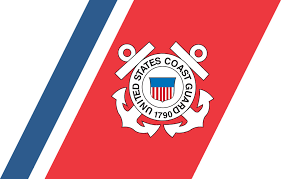SUBJECT: Port of New Orleans Procedures for Filing Updated Electronic Export Information (EEl) when Merchandise Is Sold after Departure of Conveyance
Foreign Trade Regulations:
The Foreign Trade Regulations (FTR) issued by the Census Bureau, Department of Commerce in Title 15 of the Code of Federal Regulations (CFR) Part 30 require mandatory filing of export information through the Automated Export System (AES) or through AESDirect for all shipments where export information is required by the FTR, The FTR include provisions for issuance of civil penalties for violations of the FTR and collection of penalties. Penalties may be imposed for failure to file or delayed filing of export information in AES, filing false or misleading information in AES, and other violations of the FTR including failure to correct information in AES as the changes become known to the filer or authorized agent.
Electronic Export Information:
The CBP regulation, 19 CFR 192.14, states that for vessel cargo, the U.S. Principal Part in Interest (USPPI) (i.e. the person or legal entity in the United States that receives the primary benefit, monetary or otherwise, from the export transaction), or its authorized agent must transmit and verify system acceptance of export vessel cargo information no later than 24 hours prior to departure from the U.S. port where the vessel cargo is to be laden. The FTR states that for vessel cargo, the USPPI, or the authorized agent, shall file the EEI as required by 15 CFR Part 30 and further provides that the filer must correct information in AES as changes to that information become known to the filer or authorized agent.
Merchandise sold while the conveyance is en-route
For certain types of commodities, the practice of selling all or a portion of the shipment after export is a common business practice. Under the FTR, the exporter or authorized agent is expected to amend the original EEI and file any subsequent EEI record as soon as changes become known. The original EEI submission(s), that were filed prior to the departure of the vessel, must be amended to reflect the changes resulting from the sale of a portion of the cargo in that shipment. Additional EEI records are to be made to indicate the portion of the cargo that was sold to another foreign party while in transit to the original foreign destination, as soon as the sale is known to the exporter or their agent. The filing of the new EEI should be made as soon as it is known. Although the initial EEL may have been filed timely, filing a new EEI may generate a late filing penalty for the new EEI record in AES. In the case of merchandise sold while the conveyance is en-route, these penalties can be avoided if the exporter or their authorized agent contacts the Port to inform them that a portion of the shipment has been sold. The exporter or their authorized agent may provide the original Internal Transaction Number (ITN) and the new ITN, along with a brief description (1 paragraph or less) of what has occurred. This may be done via email, fax, or telephone call, as prescribed by the individual ports within the Area Port of New Orleans. As a result, such late file penalties can be avoided altogether.
In order to preempt CBP in the Area Port of New Orleans from issuing penalties in these circumstances, the filer should advise the following points of contact at the respective ports:
Port POC Phone No. Email Address
Baton Rouge Sabrina Burgess (225) 389-0261 CBP-OFO-BatonRouge@cbp.dhs.gov
Gramercy Outbound Team (225) 869-3765 GRAMERCY-POE@cbp.dhs.gov
Lake Charles John Chehotsky (337) 721-3400 swla-ports@cbp.dhs.gov
Morgan City Outbound Team (985) 632-8182
New Orleans Outbound Team (504)670-2260
CBP may ask additional questions about the shipment to determine if the subsequent EEI records were filed timely: the ports may ask for information about the actual sale date of the merchandise, and when that information was made available to the filer or authorized filing agent of the EEI record.
Such documentary evidence need not be in any specific format but should comply with the following:
The original documents should be in English, or a translated version should also be provided;
Sales documents should identify the buyer and seller;
Documents should indicate the date when the sale was finalized; and Should contain a description of the merchandise being sold.
Please contact the New Orleans Fines, Penalties and Forfeiture Office at (504) 670-2390 if there are any procedural questions about this process or questions about specific penalties issued by the Area Port of New Orleans. Any policy questions should be referred to Mr. Robert Rawls, Outbound Branch Chief, Washington DC at (202) 344-2847 or via email at robert.rawls@dhs.gov.

